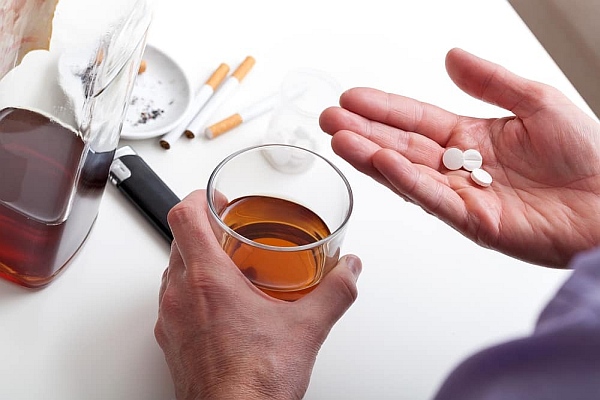When we sip that first drink—perhaps it’s a handcrafted cocktail or a casual pint at the local pub—how often do we stop to ponder the intricate espresso beans of terminology that hover over our heads like a barista’s steam? Specifically, what comes to mind when discussing the nuances of “impairment” versus “intoxication”? Are these terms merely interchangeable lingo tossed around in legal discourse, or do they indeed carry distinct connotations? This question isn’t just a smoky cloud of rhetoric; it challenges us to unpack the formidable layers of meaning that envelop these words.
Let’s begin with “intoxication.” When you think of this term, it often conjures up vivid imagery—perhaps a night out, laughter echoing across the streets, and then, perhaps, a staggered walk home. Intoxication is definitively defined in most states as a condition resulting from consuming alcohol or drugs, where one’s cognitive functions and motor abilities are visibly impaired. However, the crux of the matter lies in understanding what truly warrants a label of “intoxicated.” Most laws hinge on specific blood alcohol concentration (BAC) thresholds, typically 0.08% for drivers in the United States. But dig a little deeper, and you will find that the experience of intoxication can vary dramatically between individuals.
Now, let’s consider “impairment.” Unlike “intoxication,” which often suggests a clear state achieved through excessive consumption, impairment is more nebulous, extending its reach beyond the mere act of drinking. It encompasses a broader spectrum of diminished capacity, affected not only by alcohol but also by various other substances—think prescription medications, fatigue, even emotional stress. When someone is described as “impaired,” it suggests that their ability to perform tasks—like driving or making decisions—has been compromised, albeit not necessarily to the degree that would qualify for a label of “intoxicated.” Just as a master painter uses different brush strokes to create an intricate mural, the concept of impairment employs a more complex palette of variables.
The distinction here beckons another playful inquiry: can one be impaired without being intoxicated? Absolutely. Picture this: you might have consumed a single glass of wine but find yourself grappling with personal factors like a recent heartbreak, chronic fatigue, or even medication-induced drowsiness. These elements juxtaposed against your sober state cultivate an impaired capacity to respond or act, regardless of how little or much alcohol is in your system. So, while intoxication could be seen as a definitive state tied to a specific BAC, impairment looms large over an array of influences that collectively interfere with one’s faculties.
Now, we challenge ourselves to consider why these distinctions matter. Why should we bother dissecting the fine print of these terms? The answer lies in their implications for personal responsibility and legal consequences. Navigating the waters of legal terminology can be precarious; understanding the variance between impairment and intoxication might just bolster one’s defense in a courtroom or impact the choices made in social settings. For example, a driver may feel “fine” after two drinks but remain oblivious to the fact that they may be impaired due to lack of sleep from the night before. They may not meet the BAC threshold for intoxication, but a police officer could still determine that their judgment and motor skills are compromised. This is compounded by the fact that not everyone metabolizes alcohol at the same rate—another layer of complexity that must be considered.
Moreover, the legal system often employs these terms with serious consequences in mind. Intoxication can lead to heavier penalties, such as DUI convictions, fines, and even jail time. On the other hand, impairment, particularly quantified through subjective assessments like field sobriety tests, can lead to lesser, yet still severe, repercussions. In jurisdictions where the law has grown increasingly stringent regarding driving under the influence, recognizing the difference between these states can be crucial for maintaining both personal freedoms and safety.
As we traverse through societal norms and legal definitions, another consideration arises: public perception. Casual conversations frequently blur the lines between impairment and intoxication, often leading to misunderstandings. Many might casually refer to being “buzzed” as drunk, while a cocktail critic might argue that social drinking doesn’t necessarily lead to significant impairment. The truth is, the societal embrace of drinking culture complicates these discussions. Social stigma may affect one’s willingness to address potential impairment, resulting in tragedies that could have been mitigated with a bit more introspection.
In closing, the exploration between impairment and intoxication is both riveting and essential. These terms serve as a testament to our evolving understanding of the human experience, the law, and societal implications. As you enjoy your next outing, take a moment to reflect. Are you simply indulging in the pleasures of life, or do considerations of impairment weave into your experience? Understanding the distinction might just enhance your enjoyment while recognizing the profound responsibilities that accompany the act of drinking. So the next time you raise your glass, ask yourself: is it celebration or caution that prevails in this moment?
